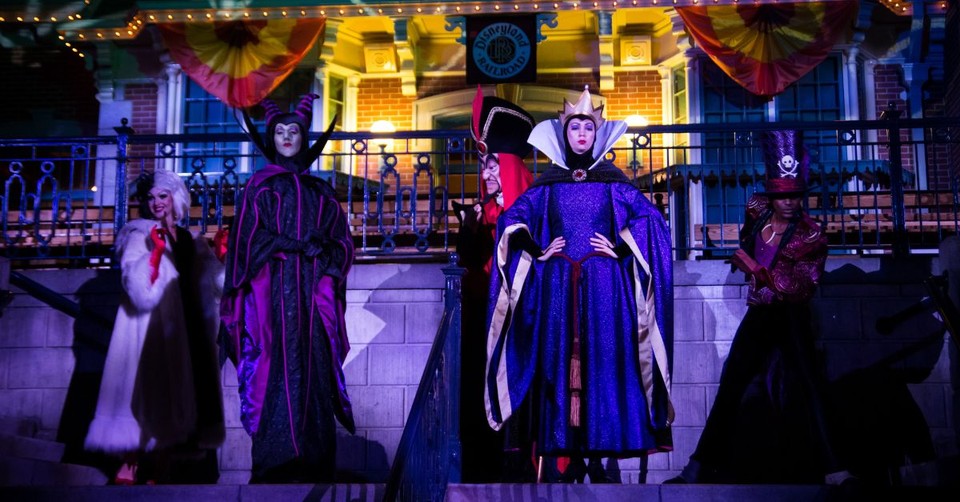How Disney’s New Take on Villains Reflects a Culture Losing Its Moral Compass

A new live show debuts later this month at Disney’s Hollywood Studios park in Orlando. It stars three of Disney’s most famous villains: Cruella de Vil, Captain Hook and Maleficent.
And lest you forget, they really were baddies.
Cruella wanted to turn cute little Dalmatian puppies into fur coats, Captain Hook tried to explode Peter Pan with a bomb, and Maleficent placed a death curse on Aurora.
So what’s the theme of the new show? They were just misunderstood.
In “Disney Villains: Unfairly Ever After,” the three characters are given the chance to plead their case as to which one has been the most misunderstood villain of all.
This isn’t a first for Disney. The 2021 film, Cruella, gave a backstory that blamed her villainy on her birth mother never wanting to have her. And it isn’t just Disney. The most famous rethinking of a pop culture villain is none other than the Wicked Witch of the West from The Wonderful Wizard of Oz. In “Wicked,” our entire thinking about the evil character portrayed in the books and in the 1939 film classic is turned on its head.
But making villains sympathetic often loses the point of having a villain in the first place. As noted in a review of the current trend by the Associated Press (AP), the centuries-old fairy tales upon which so many Disney movies are based historically were meant to teach children a lesson. As in don’t get too close to wolves (“Little Red Riding Hood,” “The Three Little Pigs”), or trust strange women in the woods (“Hansel and Gretel,” “Rapunzel”).
These were morality tales, marking clear boundaries for not only moral behavior, but also right and wrong, good and evil. The AP quotes an assistant professor of children’s literature at Texas A&M who laments that the attempt at acceptance has gone so far that we have now lost “the villainous villains.” She adds: “There is value in the villainous villains. There are people who just do evil things. Sometimes there is a reason for it, but sometimes not. Just because there is a reason doesn’t mean it negates the harm.”
Of course, this could be nothing more than Disney capitalizing on the success of “Wicked.” It’s a formula: take a villain, make them sympathetic.
Or it could be an extension of something much deeper in our culture that is just now reaching our classic villains of fiction.
In 1973, psychiatrist Karl Menninger published a book with the provocative title Whatever Became of Sin? His point was that sociology and psychology tend to avoid terms like “evil,” “immorality,” or “wrongdoing.” Menninger detailed how the theological notion of sin became the legal idea of crime and then slid further from its true meaning when it was relegated to the psychological category of sickness. So lust becomes sensuality, anger becomes merely being honest with your emotions, and being a married man’s mistress becomes “life companion.”
Anything but sin.
So perhaps we shouldn’t be surprised by the turn away from true villainy in the world of pop culture. We started turning away from seeing it in ourselves a long time ago.
James Emery White
Sources
Mike Schneider, “When Did Disney Villains Stop Being So Villainous? New Show Suggests They May Just Be Misunderstood,” AP News, May 2, 2025, read online.
Photo Courtesy: ©Wikimedia Commons/Anna Fox
Published Date: May 15, 2025
James Emery White is the founding and senior pastor of Mecklenburg Community Church in Charlotte, NC, and a former professor of theology and culture at Gordon-Conwell Theological Seminary, where he also served as their fourth president. His latest book, Hybrid Church: Rethinking the Church for a Post-Christian Digital Age, is now available on Amazon or from your favorite bookseller. To enjoy a free subscription to the Church & Culture blog, visit churchandculture.org where you can view past blogs in our archive, read the latest church and culture news from around the world, and listen to the Church & Culture Podcast. Follow Dr. White on X, Facebook, and Instagram at @JamesEmeryWhite.
Originally published May 15, 2025.







